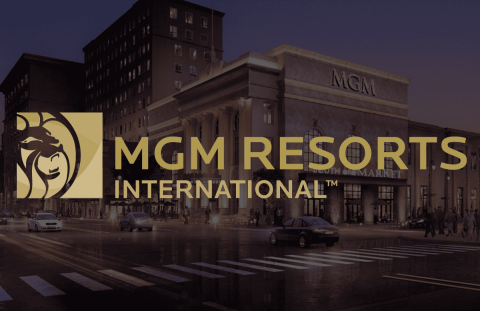MGM Resorts Applies for New York Casino License
MGM Resorts International has formally entered the high-stakes race for one of New York State’s three coveted downstate casino licenses. Through its subsidiary MGM Yonkers, the company has filed a $2.3 billion redevelopment blueprint that would transform the historic Empire City Casino into a full-scale, Las Vegas-style gaming and entertainment hub. The plan promises an expanded gaming floor, a flagship BetMGM Sportsbook, a 5,000-seat entertainment arena, three signature restaurants, and major infrastructure upgrades across Yonkers. MGM forecasts thousands of new jobs, fresh tax revenue for municipal coffers, and long-term economic momentum for Westchester County—if state regulators approve its bid.
Empire City Casino: A $2.3 Billion Vision for Renewal
MGM Resorts’ proposal calls for a sweeping makeover of Empire City Casino, the venerable Yonkers Raceway complex that has entertained New Yorkers for more than a century. The application details a bold capital program—$2.3 billion in total outlay—aimed at morphing the existing video-lottery venue into a full-fledged commercial resort. Plans include modern architectural façades, expanded gaming pits with new table games, and cutting-edge slot technology designed to rival the most advanced floors on the Strip.
Bill Hornbuckle, MGM Resorts’ chief executive, noted that securing one of the state’s downstate licenses would “ensure this site remains a cultural and economic force for generations.” (Source: MGM Resorts press briefing)
Three Licenses, One Fierce Contest
New York’s Gaming Facility Location Board will award only three downstate casino licenses, and nearly a dozen heavyweight operators have entered the fray. Unlike rivals pitching new-build projects in Midtown Manhattan or on Long Island, MGM is leveraging Empire City’s existing footprint to accelerate time-to-market. By upgrading rather than constructing from scratch, the company argues it can begin generating tax revenue and hospitality jobs far sooner than green-field competitors.
Job Creation and Economic Stimulus
Economic projections within the filing forecast thousands of direct jobs in construction and ongoing operations, plus an additional wave of indirect employment through local vendors and service providers. MGM cites regional modeling that shows a potential multi-hundred-million-dollar boost to Westchester’s annual economic output once the casino’s new amenities are running at full capacity.
Infrastructure Investments for Yonkers
Recognizing that growth cannot come at the expense of local quality of life, MGM’s plan earmarks capital for public works in Yonkers:
- Traffic mitigation: redesigned ingress and egress routes to reduce congestion on Central Avenue.
- Water and sewer upgrades: installation of higher-capacity lines to handle increased footfall and onsite demand.
- Road resurfacing and signage: improvements around the Raceway campus to streamline commuter flow.
These commitments, MGM contends, will position Empire City as a good corporate neighbor while future-proofing Yonkers’ civic infrastructure. (Source: New York Gaming Commission filings)
A Next-Generation Gaming and Entertainment Mix
The redevelopment blueprint features:
- An expanded gaming floor with a new high-limit lounge tailored to premium clientele.
- A state-of-the-art BetMGM Sportsbook equipped with stadium-style seating and immersive video walls.
- A 5,000-seat multipurpose venue capable of hosting concerts, sporting events, and commencements.
- Three chef-driven restaurants plus refreshed quick-service outlets, broadening culinary choice for guests.
MGM argues that bundling first-class dining, live entertainment, and integrated sports betting under one roof will amplify length-of-stay metrics and boost per-capita spending.
Revenue-Sharing Blueprint: A Win for Local Governments
Under MGM’s proposal, the City of Yonkers would capture 10% of all gaming tax revenue, while Westchester County would receive an additional 5%. Neighboring Rockland and Putnam counties stand to split another 5%, distributing the project’s fiscal dividends across the broader region. The license fee and ongoing taxes are expected to provide a dependable funding stream for schools, transit, and public-health programs—key selling points for state regulators weighing competing bids.
Strategic Importance for MGM Resorts
Securing a downstate New York license would cement MGM’s Northeast growth strategy, linking Empire City with the company’s established presence in New Jersey and Massachusetts. The integration of the BetMGM digital platform creates a seamless omnichannel ecosystem, allowing customers to toggle between online wagering and on-property experiences—an advantage MGM says will translate into higher lifetime customer value.
Stakeholder Outlook: What Comes Next?
Regulators’ Timeline: The Gaming Facility Location Board is expected to shortlist finalists by early 2026, with final approvals following environmental and community-impact reviews.
Community Voice: Yonkers officials have signaled broad support, but must still convene public hearings to hash out traffic, zoning, and labor agreements.
Competitive Pressure: If MGM wins a license, rivals could accelerate their own New York development plans, intensifying the battle for market share in the nation’s most populous city.
Betting on Yonkers’ Future
MGM’s $2.3 billion wager on Empire City Casino reflects both confidence in downstate New York’s gaming potential and a commitment to community-centric development. By pairing luxury amenities with infrastructure upgrades and a robust revenue-sharing scheme, the company aims to persuade regulators that a modernized Empire City will be more than a casino—it will be an economic engine and cultural landmark for decades to come. As the licensing race enters its decisive phases, all eyes remain on Albany to see whether MGM’s vision of a transformed Yonkers will receive the green light.
